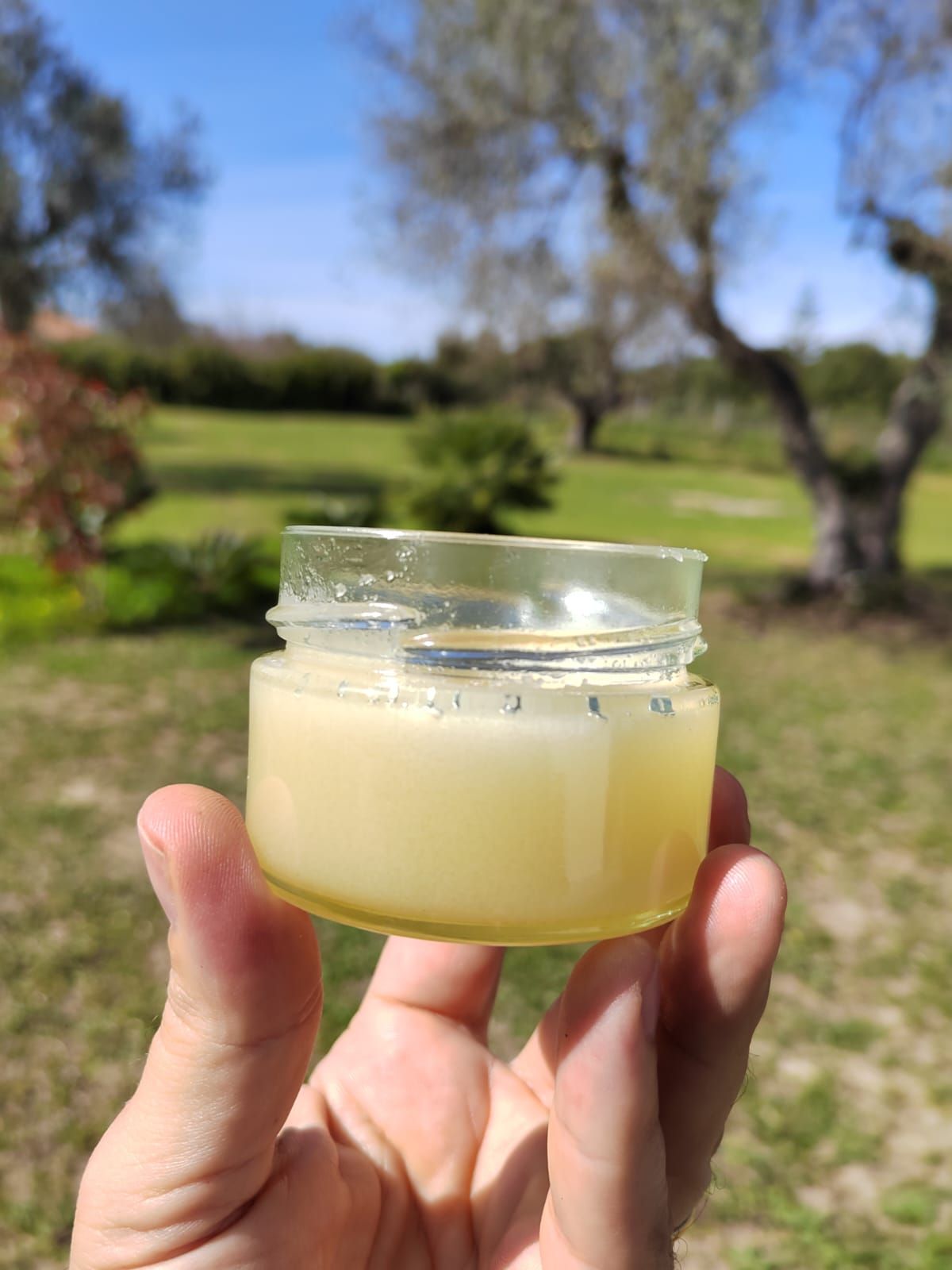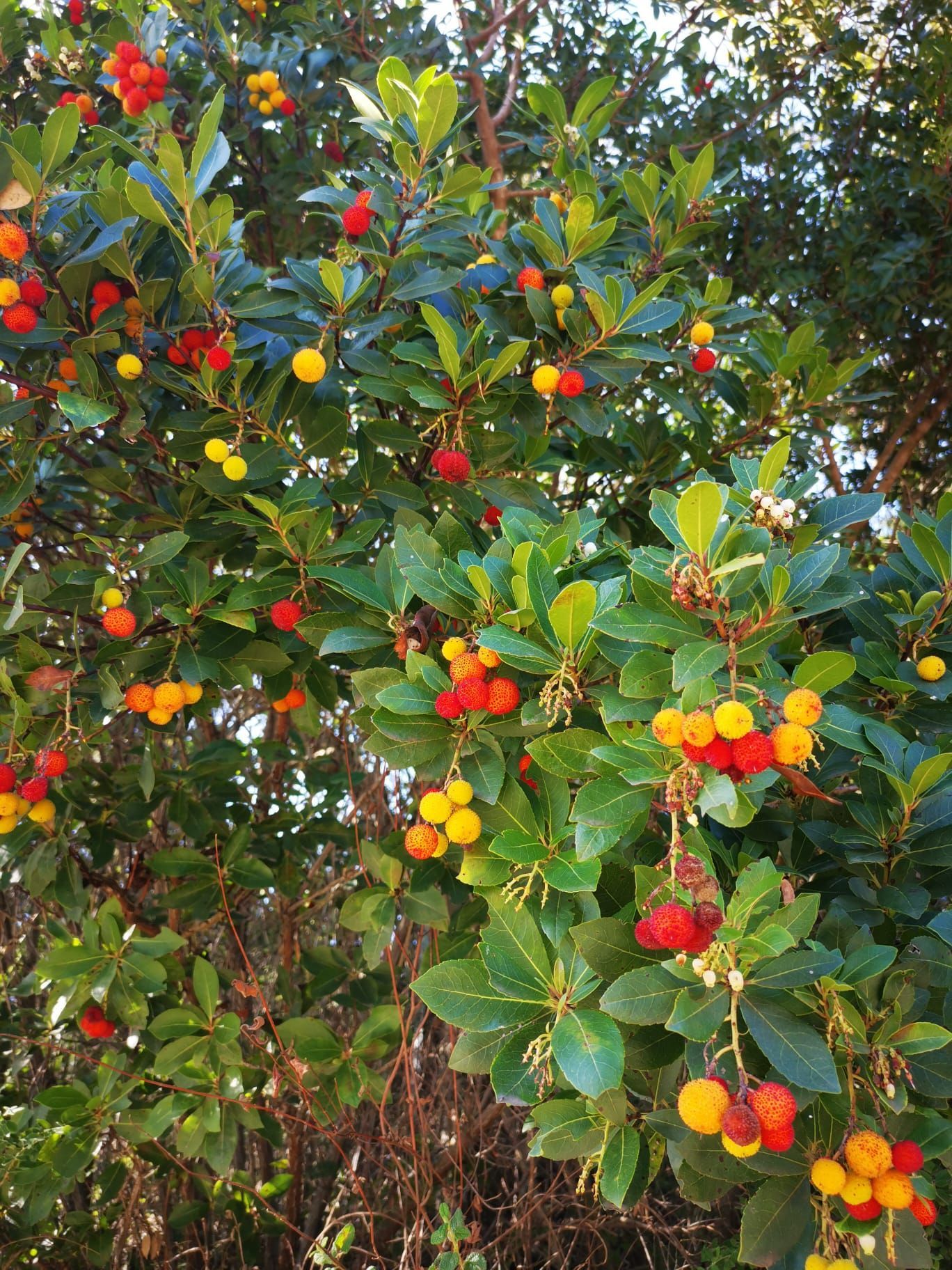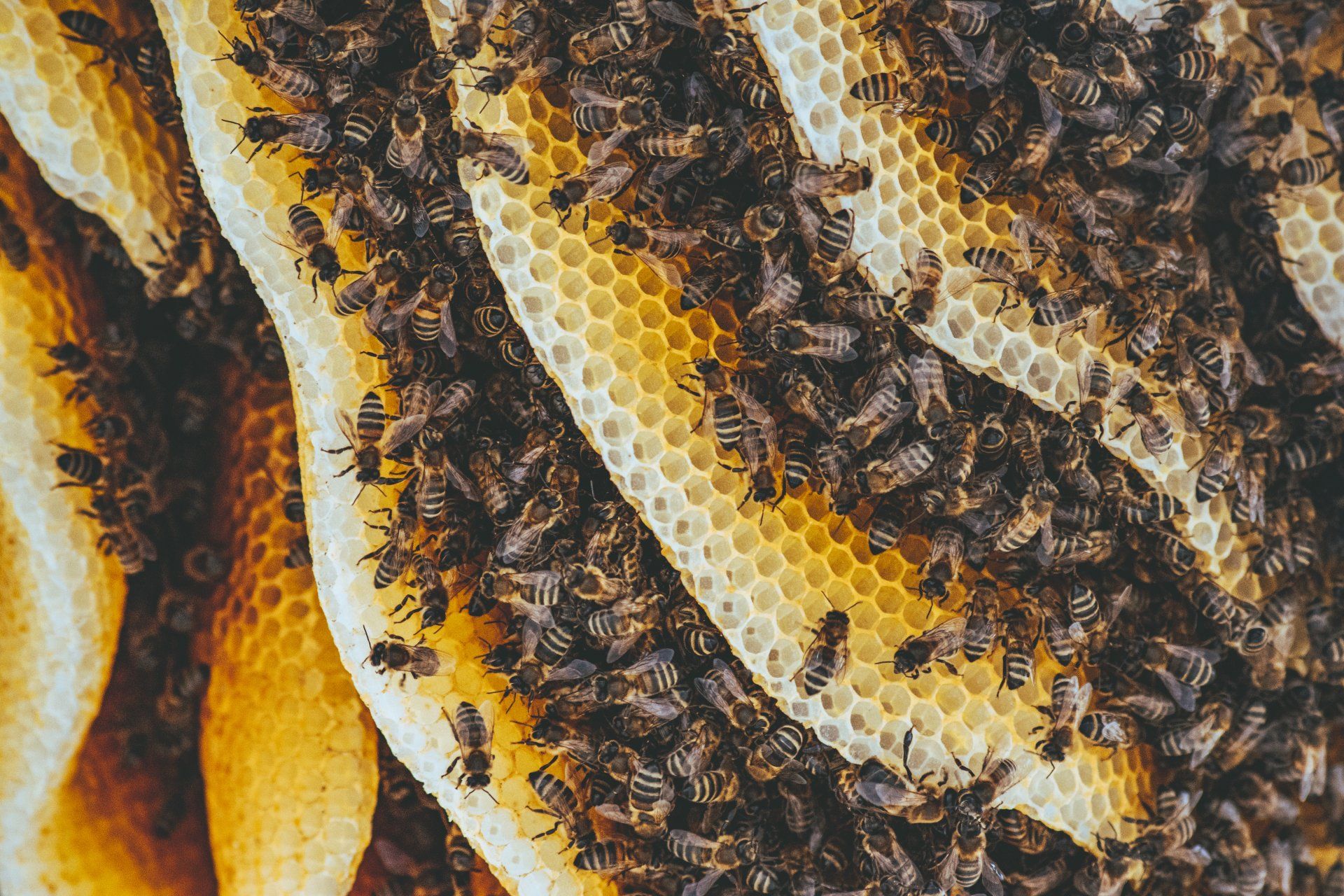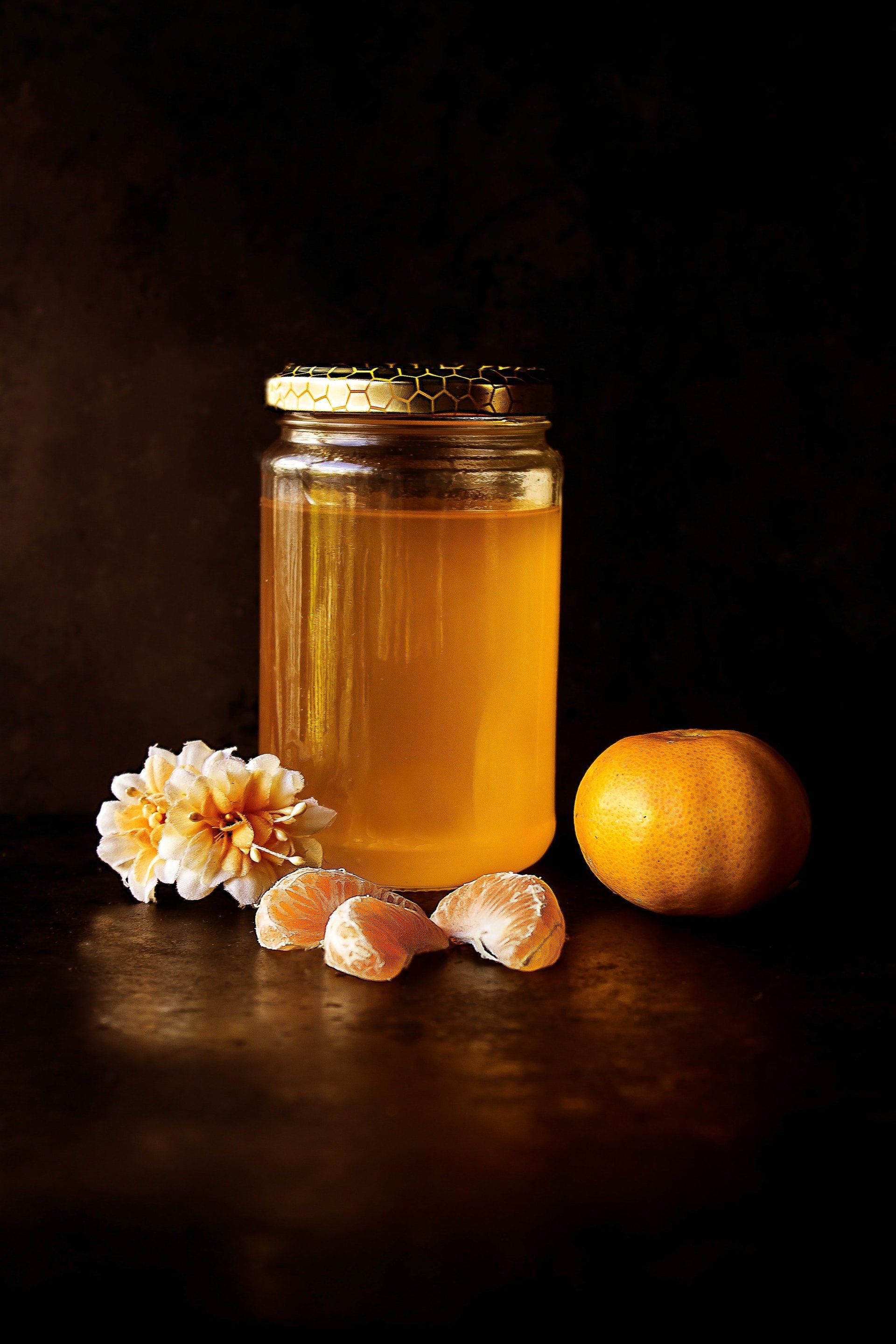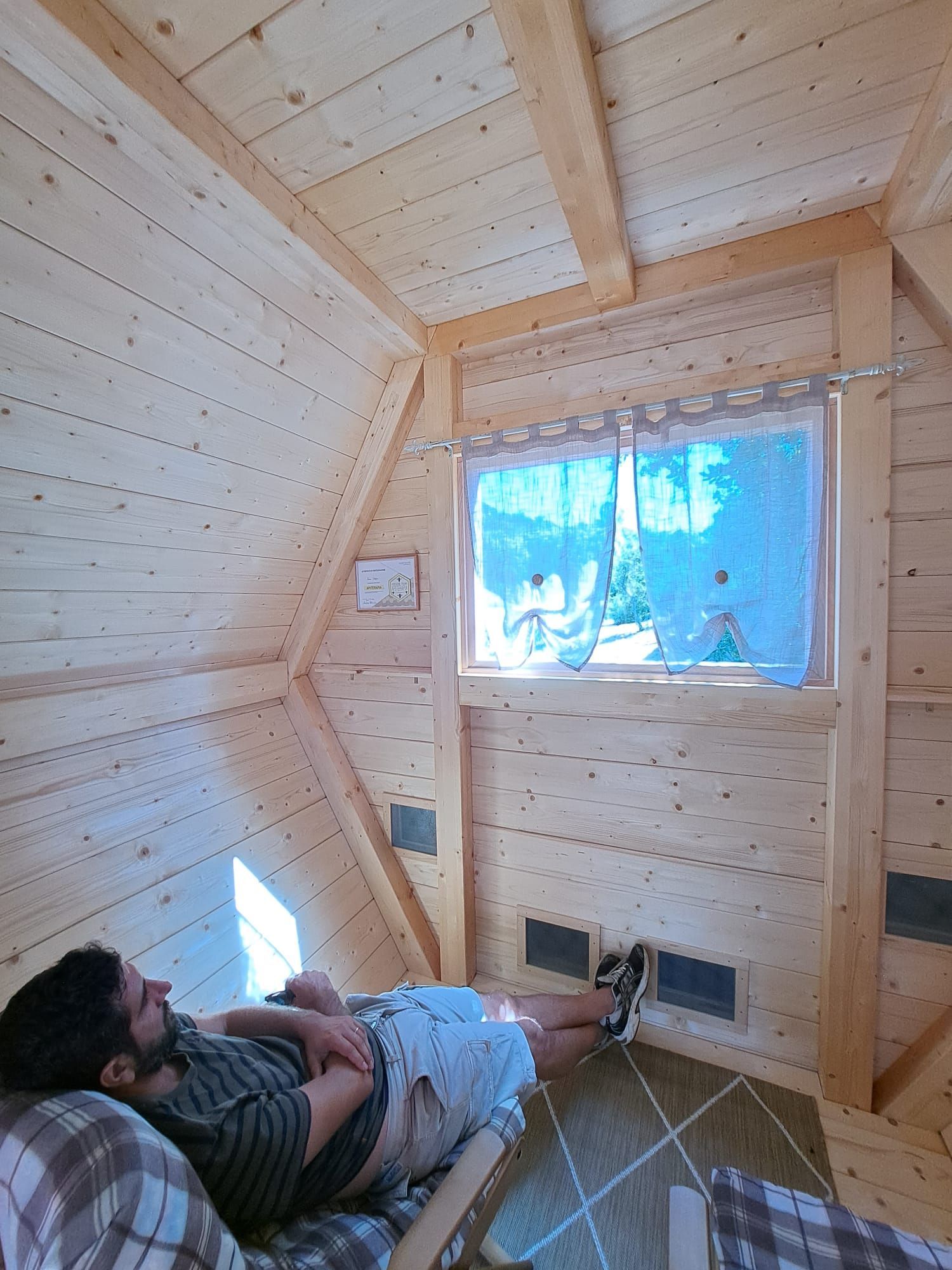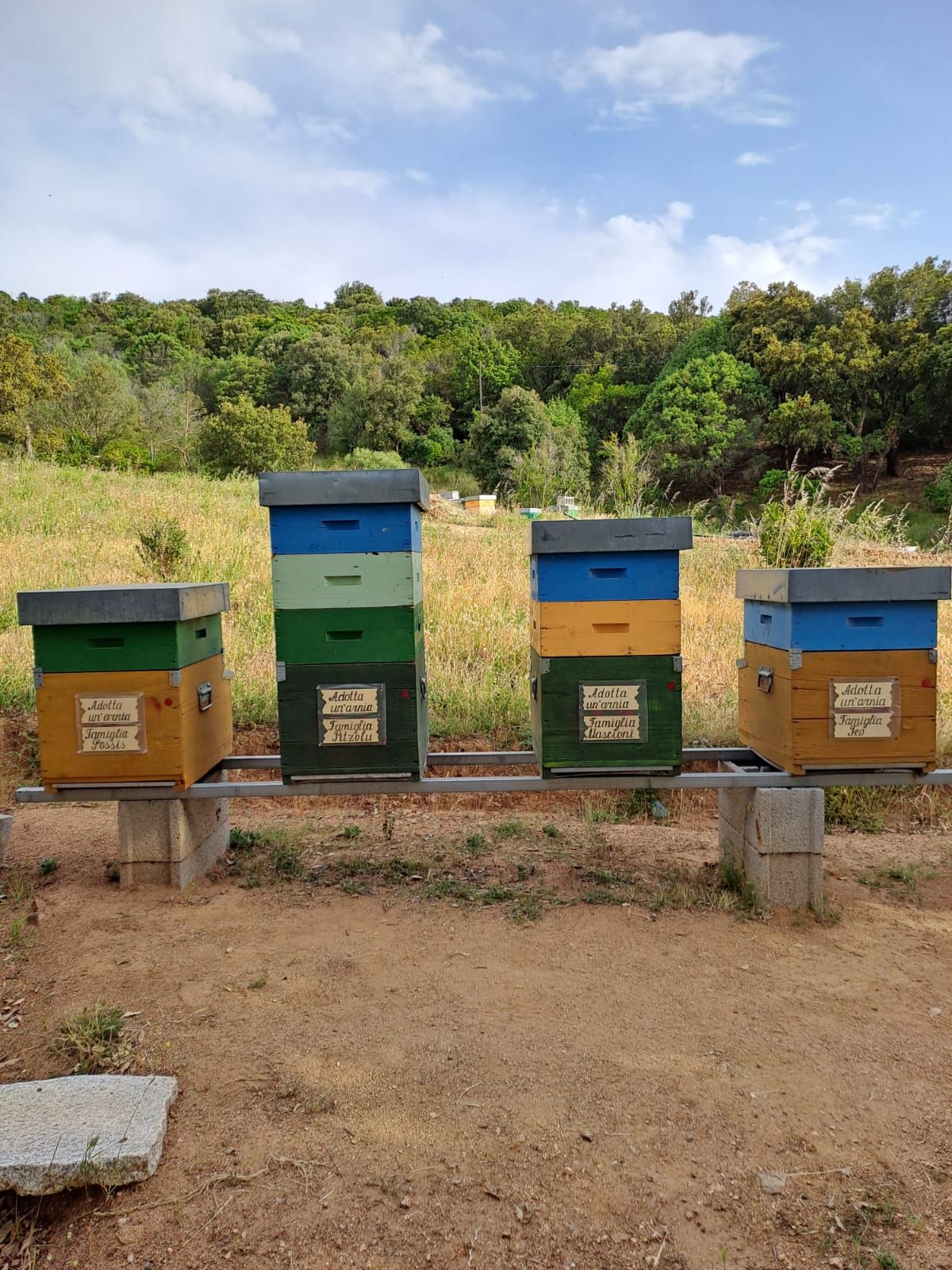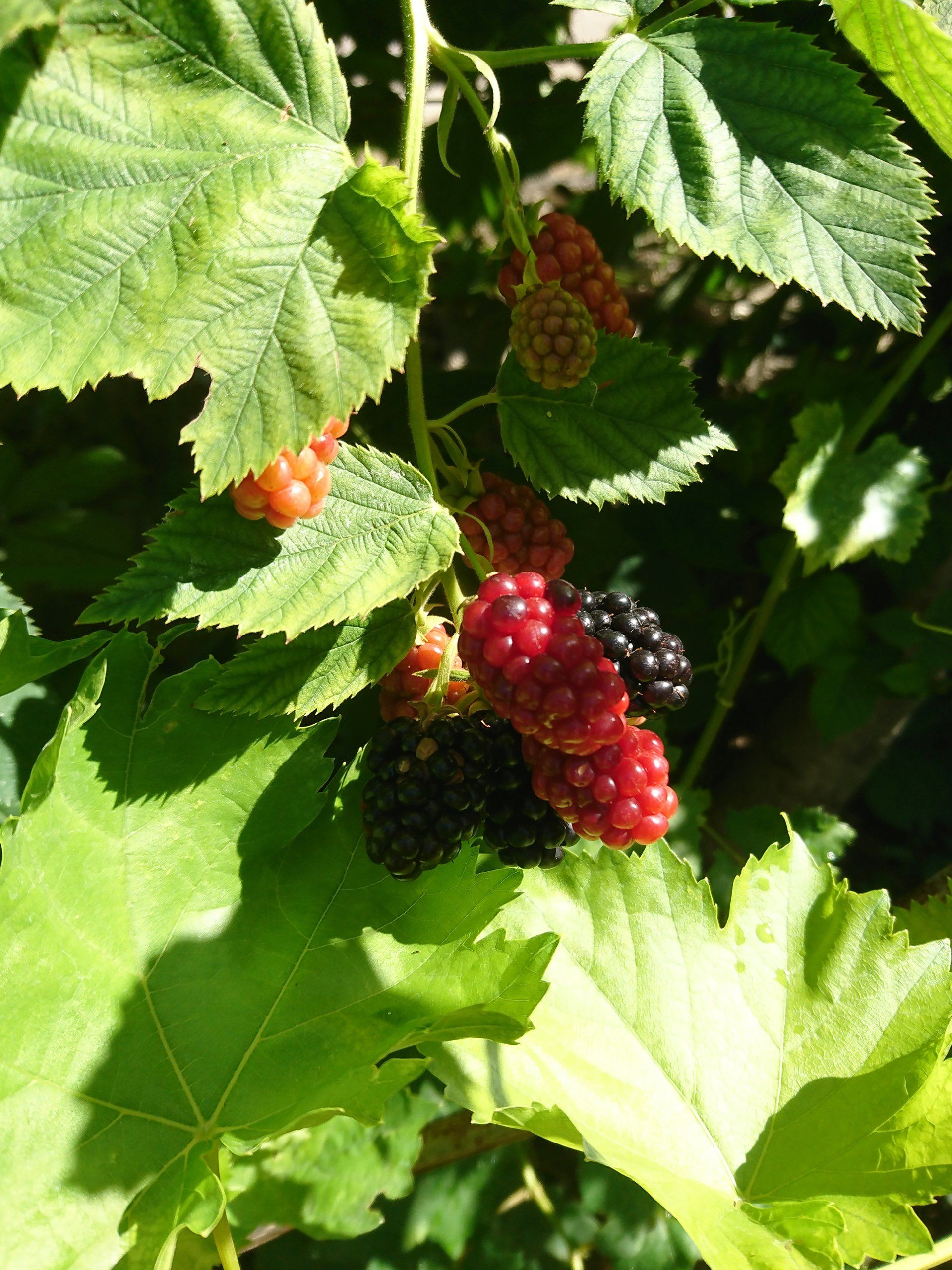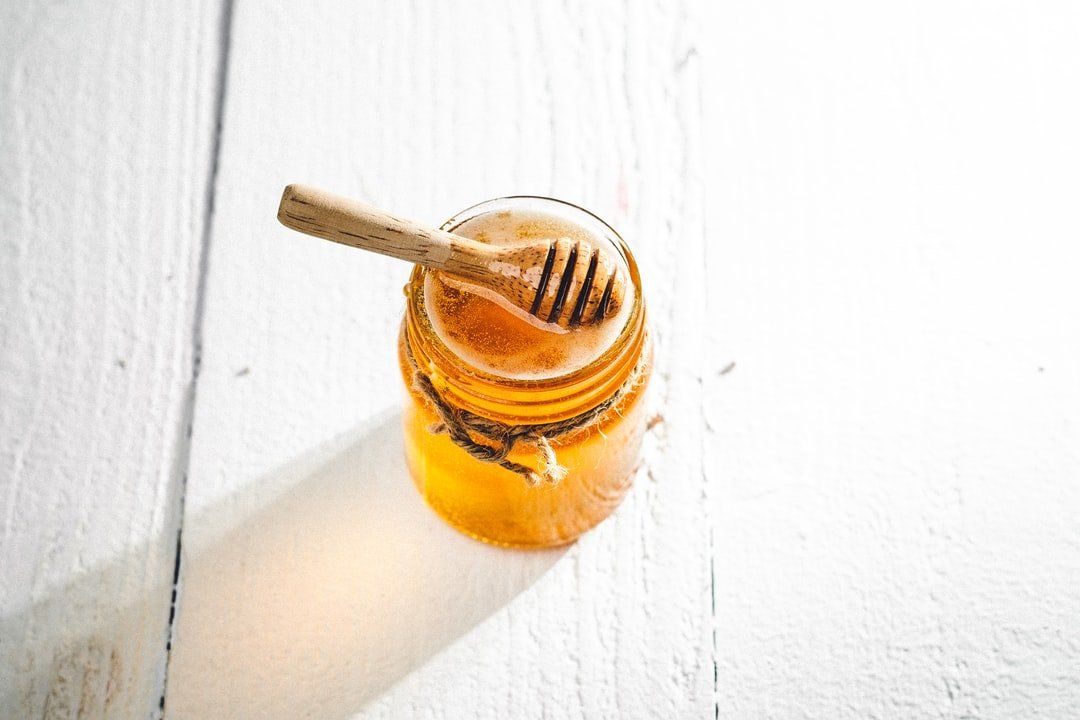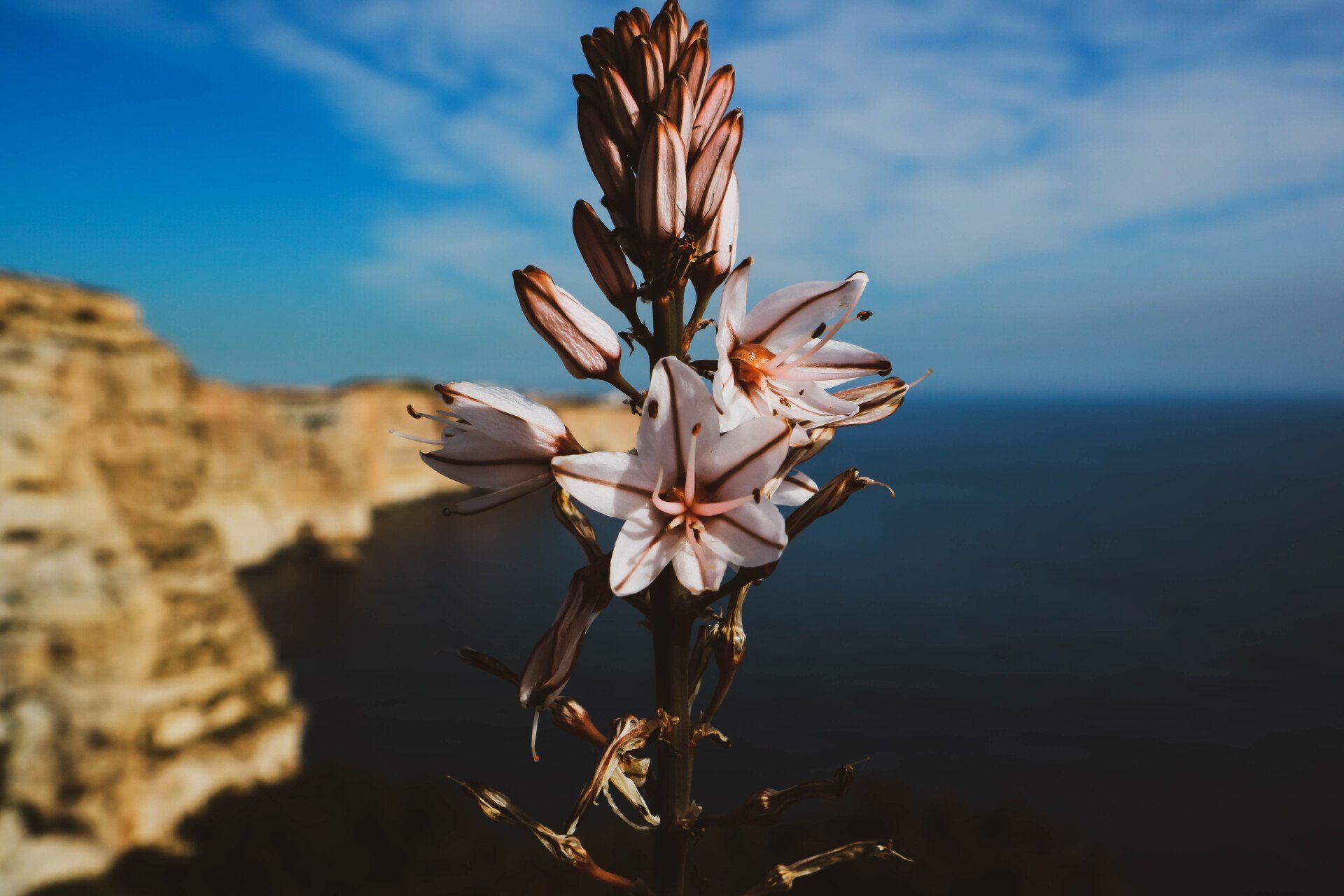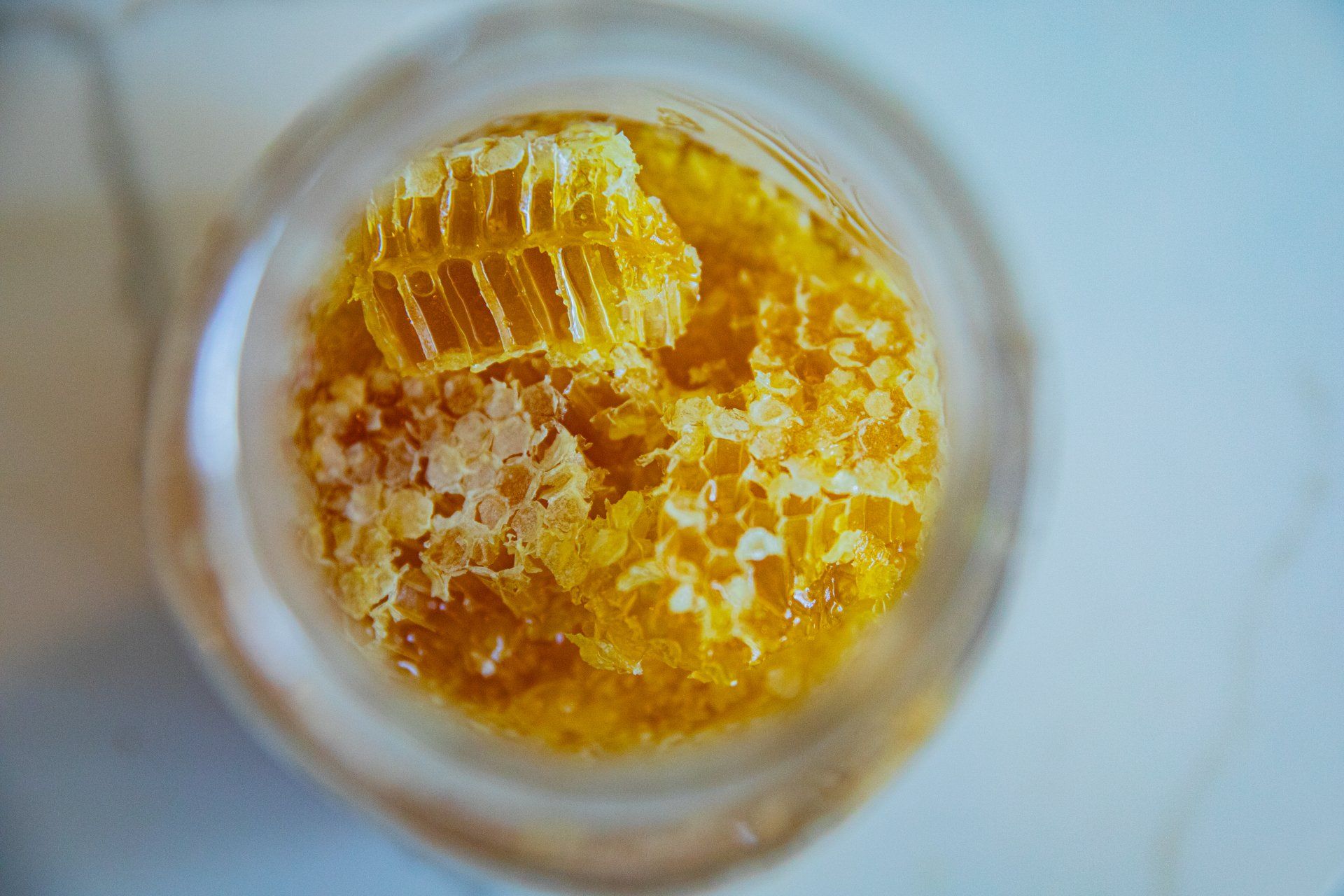Sardinian Revolution in the Hive
Why Asphodel bitter honey is different?
This story takes us to the northeast of Sardinia. We have left the main road between Olbia and Orosei and are on a dirt track through beautiful wild countryside. It’s early summer and the vegetation is in bloom. The lush green of the bushes forms the ideal stage for various flowering plants. In this environment we meet our interview partners Maurizio Pitzolu and Gianbattista Coccolone. Gianbattista lives here and his beehives are located in a nearby pasture.
Why organic honey production is different
Beehives around the globe look the same on the outside. But Maurizio explains their inner value, “We rely completely on organic honey production.” In concrete terms this means totally avoiding the use of chemicals to keep the bees healthy and placing the hives in areas where intensive agriculture is not practiced. This is to prevent as much as possible the contamination of the honey with pesticides and herbicides. In addition, the group refrain from feeding the bees artificially. “We always leave the insects enough of their own honey to feed on.”
A completely new start for honey production
Through this approach Maurizio and his colleagues clearly differ from conventional beekeepers. But how did this idea come about? Maurizio and Gianbattista belong to an ever-growing group of young men (women have not yet been enthusiastic about the project), who have been galvanized by the progressive pollution of the environment and the associated death of insects. The young beekeepers having had no previous experience with bees got to know each other through attending various courses. For them it was clear, “If we want to achieve something fundamentally new, it would be better not to join forces with long-term beekeepers who don’t dare to completely change beekeeping.” With one exception, 60-year-old Stefano Furini. He has been involved with bees since his childhood. Furini has experienced for himself in his native northern Italy that beekeeping using conventional methods is no longer worthwhile and is no longer in keeping with the times.
The foundation of Asphodel
The enthusiastic beekeepers decided in 2020 to join up to form the community “Asphodel – l’Isola del Bio”. (The name Asphodel comes from the plant genus which is widespread in Sardinia and serves as a source of food for bees especially in spring). Maurizio sums up their credo, “For us the bees’ health comes first.” In addition, the young entrepreneurs want to offer their customers high-quality products and give them the opportunity to learn more about organic beekeeping in Sardinia.
Teamwork as a prerequisite to beekeep
To ensure that all members adhere to guidelines they have signed a corresponding code of conduct and an ethics pact. They also visit each other regularly, inspect their colleagues’ hives, exchange experience and help each other with their work. After all, “Organic beekeeping means extra work.” Many hands are needed not only for the honey production but also for combating the bees’ biggest enemy the Varroa mite. Maurizio explains, “The parasite infest and damage the brood. As a result, an entire bee colony can be wiped out.” In mite control organic beekeeping uses a variety of biomechanical methods together with bio acids instead of chemicals. The Asphodel beekeepers also choose areas where there are as few beekeepers as possible as mite transmission can occur from bee to bee.
Hard-fought market
You can feel the enthusiasm that unites the young men. However, beekeeping should not just be a hobby that in the best case covers its costs. “We want to market our products profitably in the long term,” Maurizio emphasizes. It’s going to be a rocky road to achieve this goal. The Italian market is fiercely competitive. Traders are not willing to pay the extra price that a lot of manual labor causes. Interestingly most of the customers of the community’s online store currently come from America and Japan.
As a next step the Asphodel beekeepers now want to make their farms accessible to tourists and inform them on site about the importance of bees for us humans and the product honey. In addition, visitors can taste and buy the different types of honey on site.
Bitter honey – a taste experience
We too had the opportunity to taste the bitter honey typical of Sardinia. Up to this point we assumed that we already knew all the flavors that European food offers, but the taste of bitter honey is completely unique and difficult to describe – “salty-sweet-bitter” probably fits best. “It is harvested in October and November when the bees pollinate the flowers of the strawberry tree,” explains the beekeeper. This plant is only found in the Mediterranean region of Europe but can give honey only in Sardinia, Corsica and a small part of Tuscany due to the local weather conditions. Bitter honey has been used for centuries in traditional Sardinian cuisine. Other tasty honeys complete the Asphodel range. If you want to spoil your taste buds, it is well advised to try the different honeys of Asphodel and bring a piece of the beautiful island to your breakfast table.
Current honey range (as of summer ‘22)
Matta Honey of different bushes





